NHS Wales: Waiting times and A&E at worst performance level
- Published
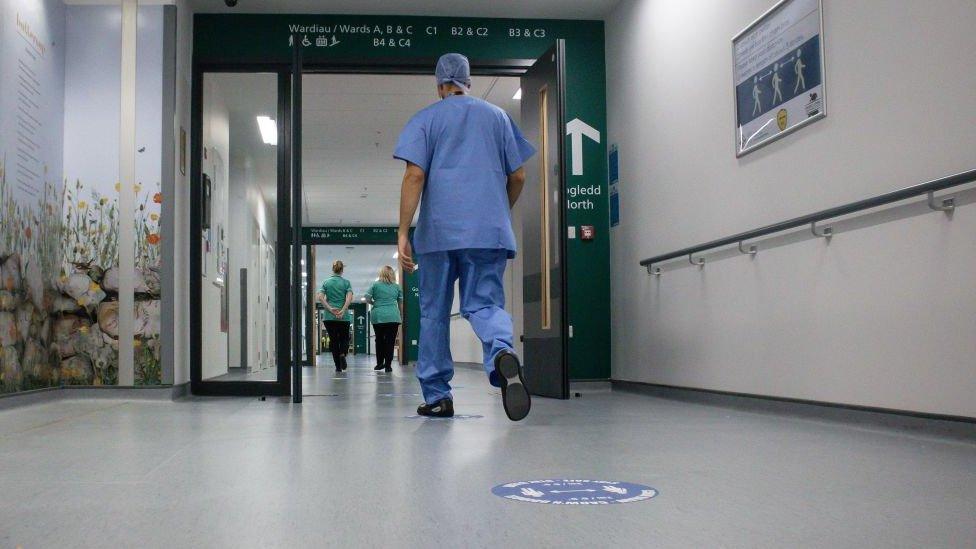
The Grange Hospital, in Cwmbran, opened in November and posted the worst A&E performance figures on record in Wales for August
The worst ever performance figures have again been recorded by hospital A&E units in Wales, reflecting the enormous pressure on emergency care in the NHS.
The Grange hospital in Cwmbran, which has been open less than a year, had the worst performance on record of any Welsh hospital.
Only 40.7% of people were seen within four hours at its A&E unit
Figures also show another record-breaking month for people on NHS waiting lists.
Those waiting more than nine months were at record levels.
The figures also show the Welsh Ambulance Service recorded its second worst response times to the most critical calls since new targets were introduced in 2015.


The figures show that in August, accident and emergency departments in Welsh hospitals recorded their worst ever performance figures with just 68.7% of patients spending less than four hours before being admitted, transferred or discharged.
This was down from 69.8% in July which was itself a record.
This dropped to 40.7% at the £350m Grange, which was worse than the 41% at Wrexham Maelor hospital in February 2020, just before the pandemic.
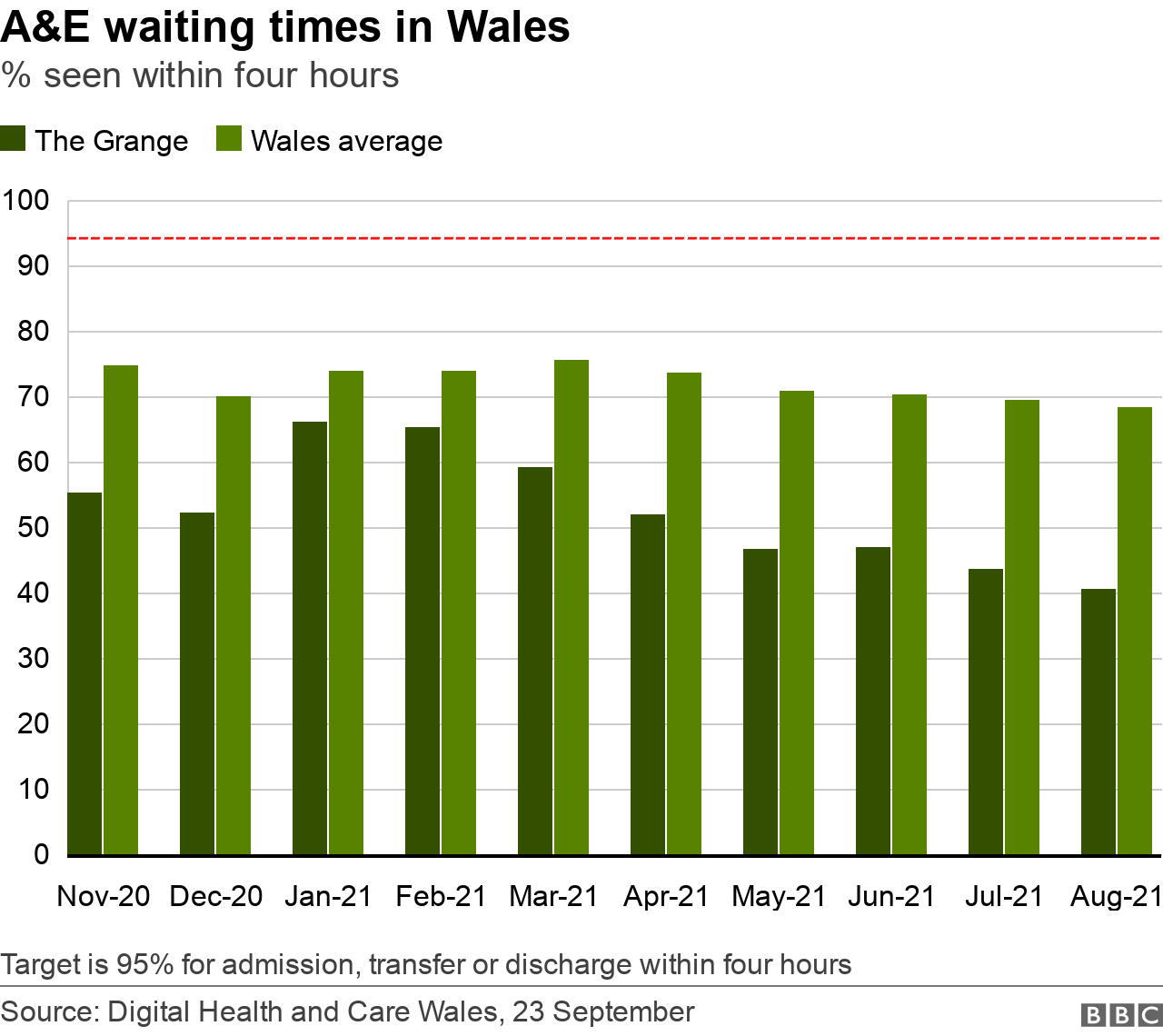

The target is that 95% of patients should wait no longer than four hours in A&E.
The figures also show in August 7,982 people had to wait more than 12 hours in urgent care departments - the highest number recorded, up from 7,084 the month before.
The target is that nobody should be waiting that long.


The performance by the Welsh Ambulance Service with response times to its "red" priority calls was the second worst on record.
Only 57.6% of these immediately life-threatening calls arrived on scene within eight minutes. The target of 65% has not been met for over a year.

The figures covering July 2021 show:
The overall waiting list for treatment is a record 643,108 - this equates to just over 20% of the Welsh population.
Numbers of patients waiting more than 36 weeks - nine months - to start treatment in hospital have grown from 25,634 in February 2020 to 239,195 (an increase of 833%)
The longest waits included 55,488 people due for orthopaedic or trauma treatment
There were still more than 500 waiting for cardiothoracic surgery, although those waiting longest for cardiology is down by 171.
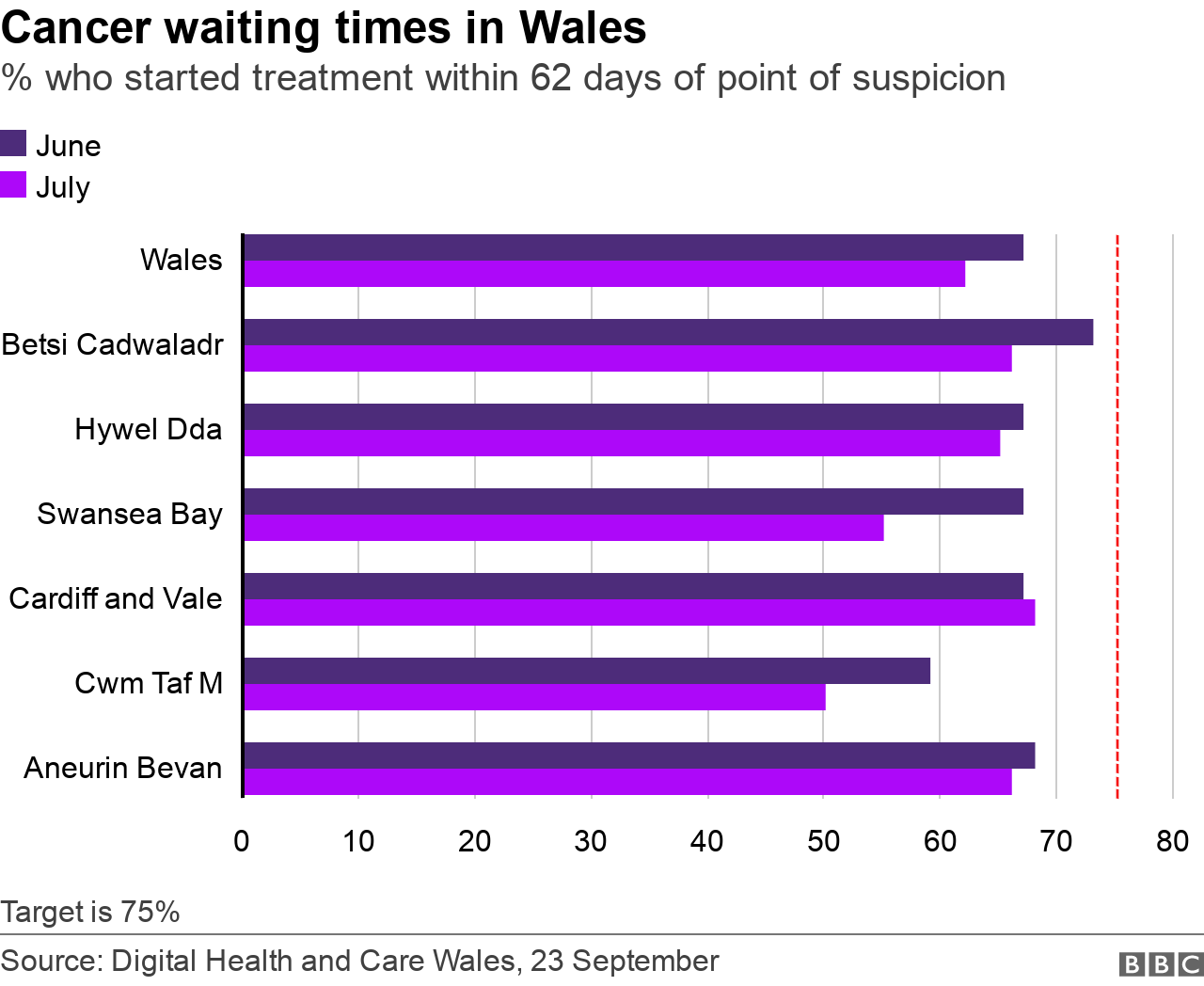

Cancer treatment times performance worsens
There has also been a fall in performance over the month relating to cancer patients waiting to start treatment.
Overall in Wales, 62% of people started treatment within 62 days of cancer first being suspected; the target is 75%.
But this is down from 67% in the previous month. In Cwm Taf Morgannwg, only half of people with suspected cancer started treatment within the 62-day period. The figure also dropped over the month from 67% to 55% in Swansea Bay.
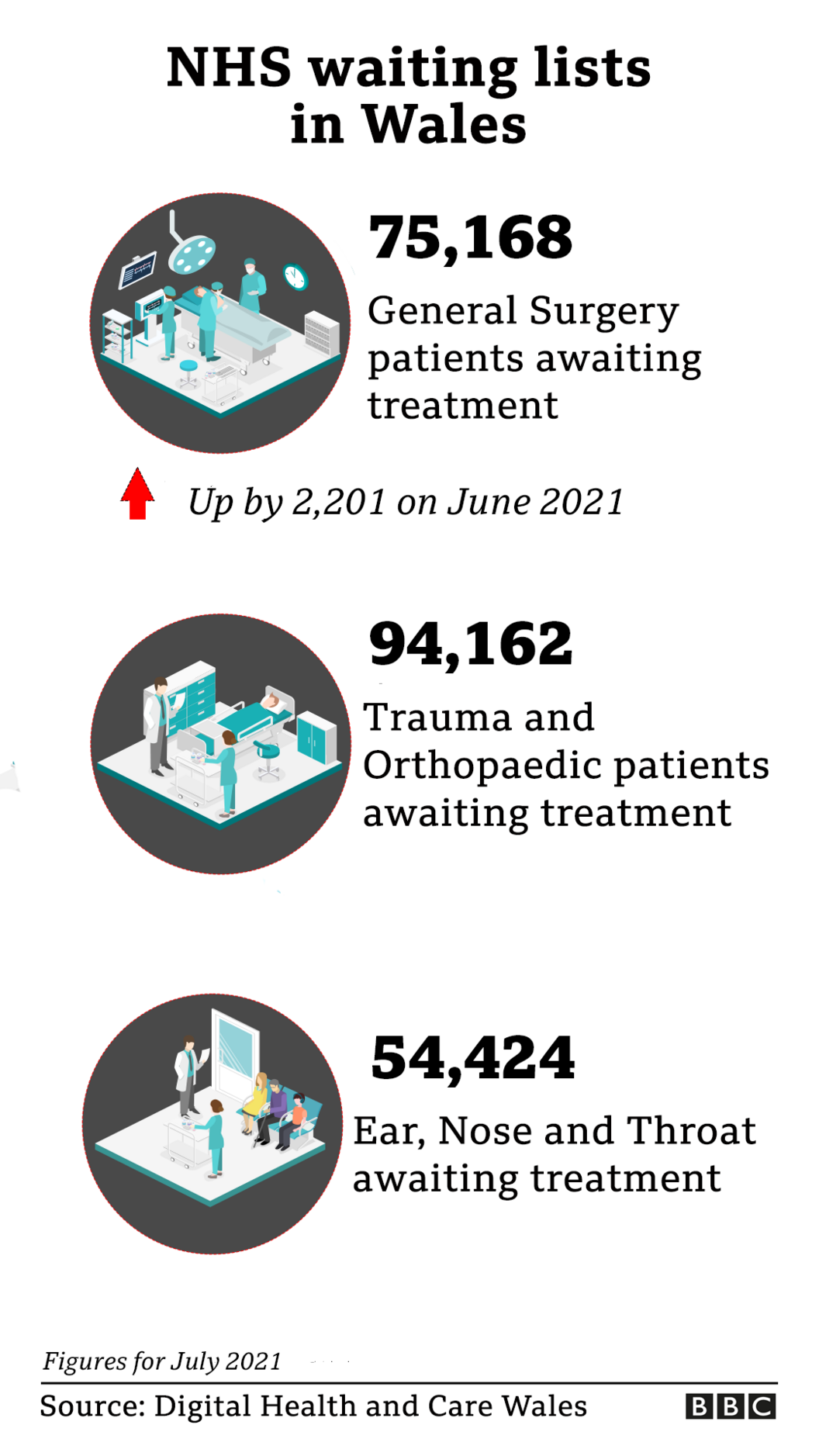

What has been the reaction?
The Welsh government said although those waiting the longest continued to be at a record high, a higher proportion were waiting less than 26 weeks and the median waiting time fell slightly.
It announced plans to invest almost £25m in new PET-CT scanners to improve access to diagnostic technology and another £25m funding to improve delivery of urgent and emergency care services.
"The system is under huge pressure at the moment and that pressure is worse than anything we've seen at any point during the pandemic," said Health Minister Eluned Morgan.
"Of course, we are determined to try to work through the enormous backlog that has been built up during the pandemic, but it's very difficult to do that when the pressure on the system is coming at us from so many directions."
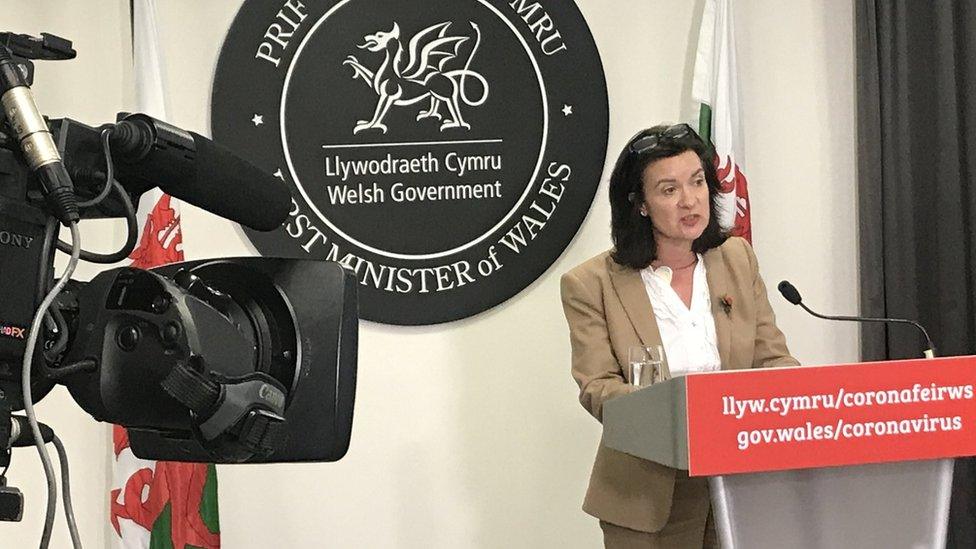
NHS in Wales is under "huge pressure" says Health Minister Eluned Morgan
Ms Morgan said the Welsh government had published its Covid recovery plan in March, and had made £240m additional funding available for health boards across Wales.
But she added: "I think we have to be honest with people, and I do think people do have to brace themselves for the fact that this is not something we are going to be able to turn around."
She said her predecessor in the job, Vaughan Gething, was "very clear that it would take at least five years to clear the backlog built up during the pandemic".
'Deep-rooted problems'
The Welsh Conservative's health spokesman Russell George said: "This is not the new normal. Not long before the pandemic, the Labour-run NHS was regularly breaking all the wrong records.
"Among the Covid-related issues affecting public services, there are deep-rooted problems that have not been tackled in the devolution era."
The Welsh NHS Confederation, which represents health boards, said the health service was "working relentlessly" to ensure those waiting would be seen as soon as possible.
"Although average waiting times for treatment remain above pre-pandemic levels, we are seeing a downward trend," said Darren Hughes, director.
Cancelling surgery 'must be a last resort'
But he added that Covid was continuing to have a "significant impact" and rising cases had compounded existing pressures, meaning some difficult decisions were having to be made.
The Royal College of Surgeons said the figures would be "distressing for patients who continue to be left suffering in pain" but that cancelling surgery, with a difficult winter ahead, must be a "last resort".
"It will be imperative to plan ahead for this winter to keep surgical services up and running," said Sue Hill, its director and a vascular surgeon.
"It is critical that Covid-light surgical hubs receive the investment and staff they need to tackle this growing backlog and support patients throughout the winter."
Richard Pugh, Head of Partnerships for Macmillan Cancer Support in Wales, said: "People are simply not getting vital cancer treatments in time.
"Wales desperately needs a detailed plan for managing our cancer care services out of this crisis."
Vice President of the Royal College of Emergency Medicine Wales, Dr Suresh Pillai, said: "We are heading into what will likely be the most difficult winter ever with consistently deteriorating performance, high numbers of patients, burned out staff, and an ambulance service on the brink of a crisis.
"It is only September and the military have already been called upon and drafted in to assist the Welsh Ambulance Service."
'Horrendous'
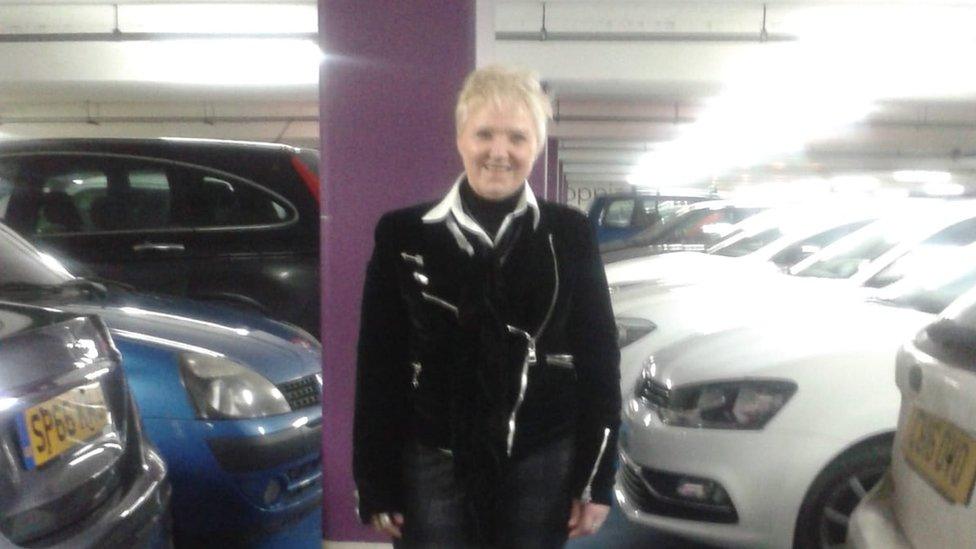
Diana Goldstraw says she feels like her life is on hold while she waits for a hip replacement
Diana Goldstraw, 64, from Swansea, has been told she will have to wait four years to get a hip replacement.
She said she broke down in tears in the waiting room when she was given the news.
She said: "I've been very, very upset because I can't do many of the things I want to do and am used to doing, like walking up the Brecon Beacons, I bought a bike last year that's never been used, I can't go out walking with my friends.
"My hip can be very unstable and on Saturday I couldn't walk at all.
"It is horrendous. I've always been a runner, a cyclist and a very keen hill walker. I've had to finish work."
Ms Goldstraw said this will be her second hip replacement, she had the first in 2015 when living in the Midlands and said that was done within six months.
"I feel that my life is on hold for four years," she said.
'Impossible to move on'
Janet Harris, from Llanmaes, Vale of Glamorgan, has been on a waiting list for breast reconstruction surgery for two years.
"About 10 minutes after I was given a diagnosis of breast cancer and told I needed a mastectomy this [reconstructive reconstruction] was offered, with this as an end goal, and end point," she told BBC Radio Wales.
"It is as much as anything the distress that one lives with - there are issues with body image and things which I think tend to be considered as secondary but they're not.
"It is impossible to move on and find closure on bad experiences."
Alyson Thomas, chief executive of the Community Health Councils in Wales, said longer waiting lists meant increased demand on GPs, while there were people waiting in hospital because support was not ready in the community.
"We know there are far too many people well enough to leave hospital after having treatment but they are still in hospital because the social care that they need after leaving hospital is not available because of the pressures in social care," she said.
"It is very important that the health and care system work together to tackle the pressures across the whole system."

THE LONG WALK HOME: 20,000 miles, 4 years, 1 man
MOTHERS, MISSILES AND THE AMERICAN PRESIDENT: The story of Greenham told like never before

- Published23 September 2021
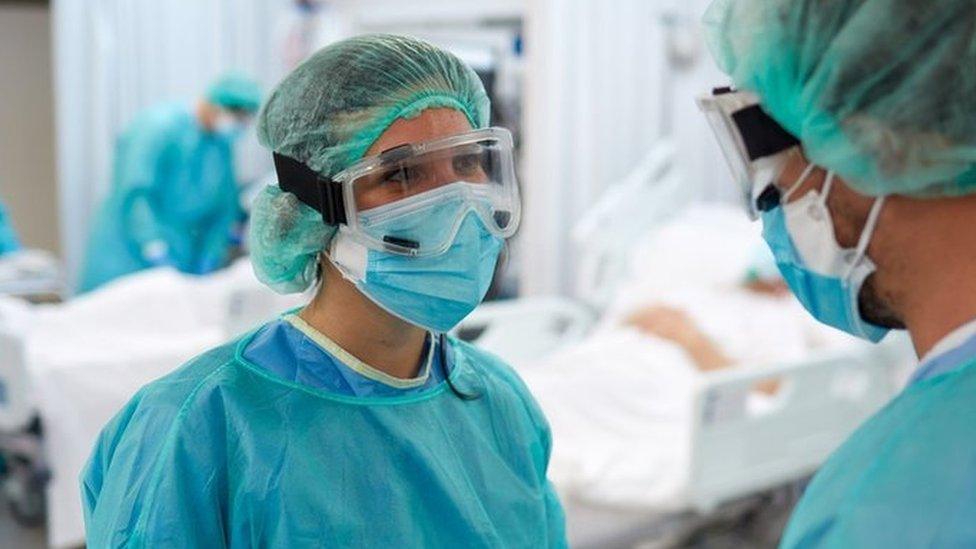
- Published22 September 2021
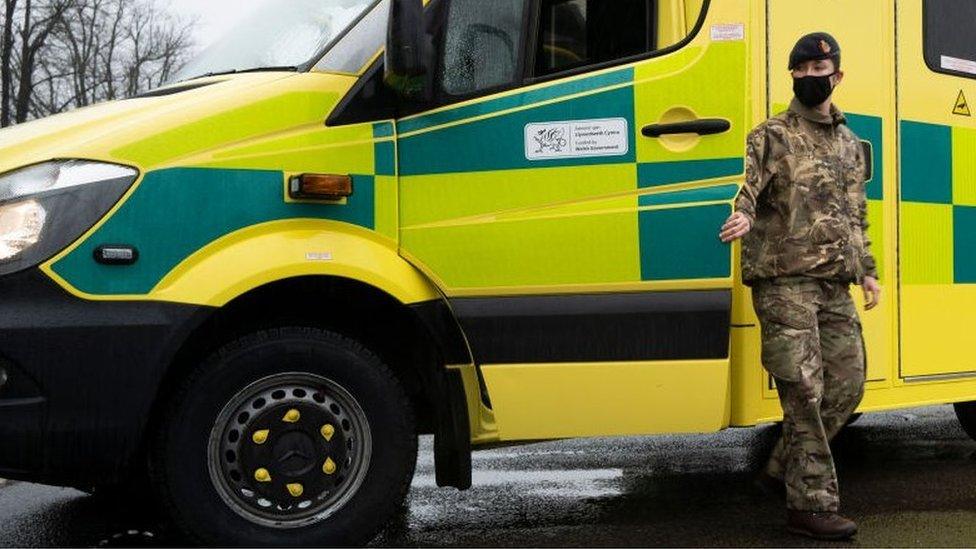
- Published23 September 2021
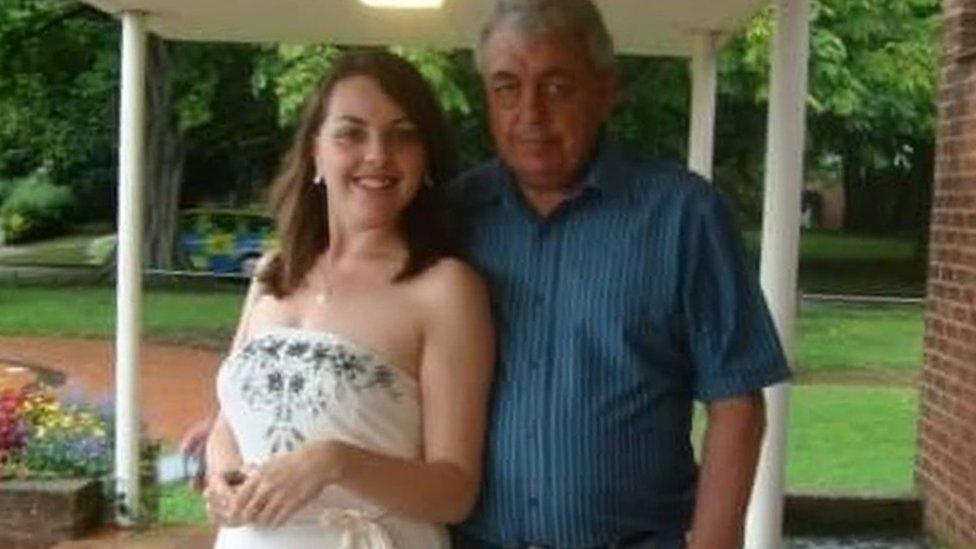
- Published19 August 2021

- Published19 August 2021
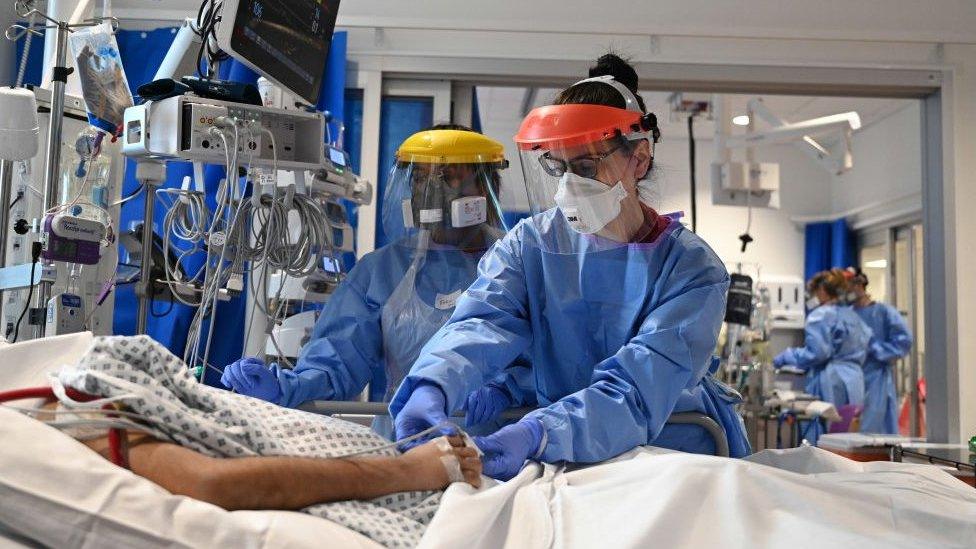
- Published22 July 2021
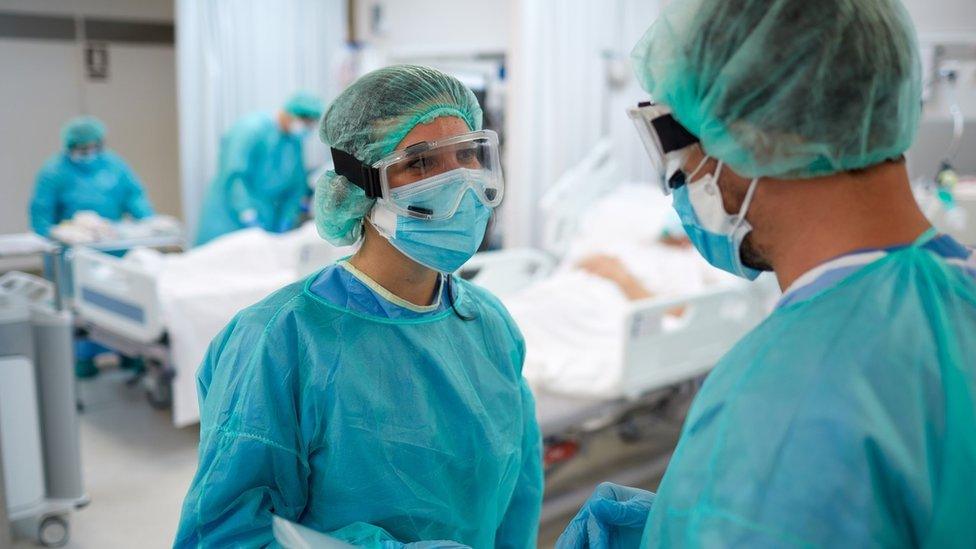
- Published18 February 2021
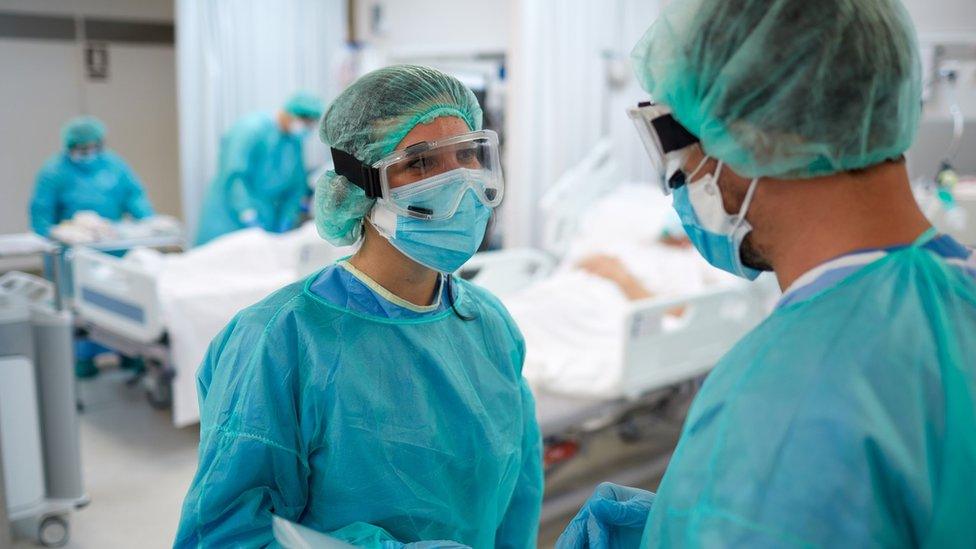
- Published17 June 2021
